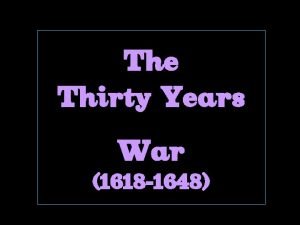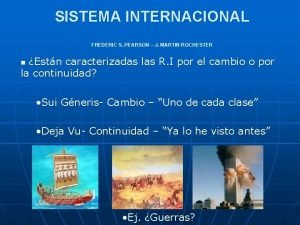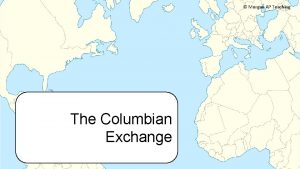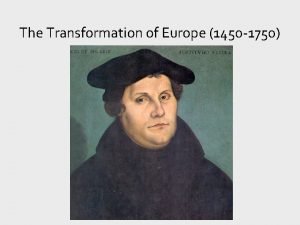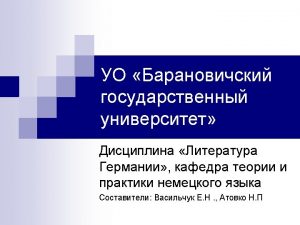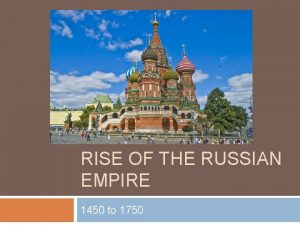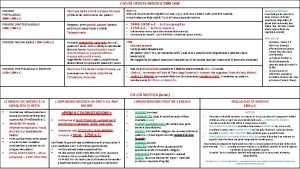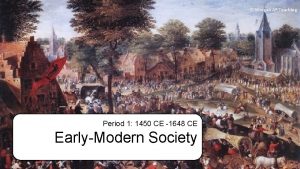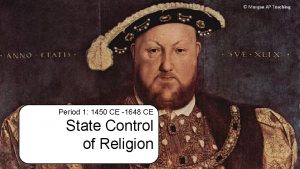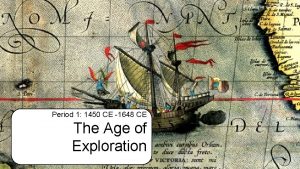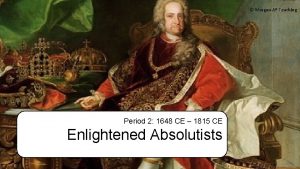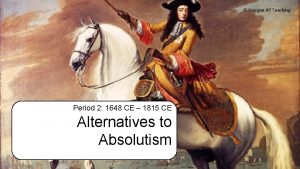Morgan AP Teaching Period 1 1450 CE 1648








- Slides: 8

© Morgan AP Teaching Period 1: 1450 CE -1648 CE Centralization of Power

© Morgan AP Teaching Spain and France • The first major powers in Europe to break the feudal cycle in were Spain and France, as they began to centralize their states and dominate the Italy and the rest of Europe • From being dominated by Muslims in Spain and local rulers in France in the 1400 s, by the end of the 1500 s, Spain and France would be the strongest European powers • Both started the process of centralization with the military and then expanded that to control of taxes and religion • In Spain, Ferdinand Isabella united all Christians in Spain against the Muslims and forced them out by 1492 • In France, Charles VII created the first standing army for France, organizing and defeating their English and Burgundian opponents

© Morgan AP Teaching Centralization of Power – Late 1400 s • When Ferdinand Isabella conquered Spain, they setup a new system that centralized power in primarily two ways: • They gave more law-making and tax collection power to themselves • They reduced the role and power of the nobles • In France, Charles VII setup the first ever united army run directly by him, as well as enhanced his taxing privileges • By uniting the taxes and militaries of these large states, Spain and France soon found that this new money and power made them almost unstoppable in Europe • Both were able to invade and profit heavily from the Italian city-states who were too localized and small to stand a chance on their own

© Morgan AP Teaching Philip II of Spain • In Spain, centralization would root itself to firmest and quickest • Within 100 years of Ferdinand Isabella, Philip II had become the king of Spain, and had almost complete control of lawmaking and power by the 1590 s • In Spain, he determined the official religion (Catholicism), banning all others & sent The Inquisition and soldiers to chase out all non-Catholics • He also had developed a complex system of bureaucrats to collecttaxes and run his vast kingdom which now expanded to the New World • While most Catholic leaders had laws against non-Catholics and collected taxes, none did on the scale or with as much authority as did Philip II of Spain

Map of Europe 1550

© Morgan AP Teaching Resistance to Centralization • Centralizing under the monarchy in Spain and France came at the expense of power of the nobles, who traditionally had their own taxes, laws, and militaries • Both kingdoms experienced large-scale revolts in the early 1600 s as nobles attempted to regain power: the Catalan Revolt (Spain) and the Fronde (France) • In Spain, the area of Catalonia grew tired of fighting the endless wars of the Spanish king in Europe, as well as paying for the massive Spanish debt • With help from France, the nobles of Catalonia revolted and won; Catalonia then left Spain, the king lost complete control over the military and taxes • A decade later, the same happened in France, however, the monarchy won during the Fronde revolts, and control over taxes and the army were actually increased


© Morgan AP Teaching Poland • With the success of Spain and France apparent, other European states began to attempt to centralize according to their model • When the Sigismund I & II attempted to centralize power in 1572, the nobles refused to comply, and instead chose to elect kings and keep their privileges • The significance of this development is that this would result in nobles exercising a large amount of local, un-centralized control • Poland, like must of Eastern Europe, would forever remain un-centralized, and controlled by agricultural-based nobles • This would lead to Poland’s weakness in the coming conflicts with Russia, Prussia (Ger), and Austria a century later
